Benjamin Graham: The Memoirs of the Dean of Wall Street
Rated 4.22 out of 5 based on 9 customer ratings
(9 customer reviews)
$24.30
Category: Investing & Wealth Strategies
Benjamin Graham (1894-1976) was a seminal figure on Wall Street. He is considered the father of modern security analysis and The Intelligent Investor. As the founder of the value school of investing, Graham influenced such subsequent investment legends as Warren Buffett, Mario Gabelli, John Neff, Michael Price, and John Bogle. Benjamin Graham grew up in New York City and was graduated from Columbia University, whose Graduate School of Business has honored him in perpetuity with a professorship known as the Graham/ Dodd Chair.
Contents:
- Childhood in New York
- Family Tragedies and My Mother’s Perseverance
- At Public School
- High School Days: Brooklyn and the Bronx
- The Farmhand and The Mechanic
- The College Student
- My Career Begins
- Early Years in Wall Street
- The Beginnings of Real Success
- The Great Bull Market of the 1920s: I Become a Near Millionaire
- The Northern Pipeline Contest
- Family and Other Affairs
- The Midpoint of Life’s Way: The Deluge Begins
- The Road Back, 1933-1940
- My ”Career” as a Playwright
- The Commodity Reserve Currency Plan
Benjamin Graham: The Memoirs of the Dean of Wall Street pdf
| Author(s) | |
|---|---|
| Format | |
| Pages | 380 |
| Publication Year | 1996 |
9 reviews for Benjamin Graham: The Memoirs of the Dean of Wall Street
Only logged in customers who have purchased this product may leave a review.
Related products
Rated 3.67 out of 5
$10.92
$18.20
Rated 3.3 out of 5
$24.49
$15.80
$12.63
$15.94
Rated 4 out of 5
$15.48
Rated 2.67 out of 5
$14.00



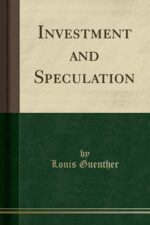
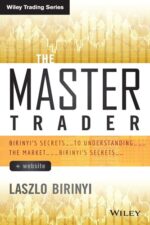
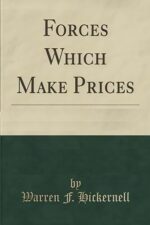
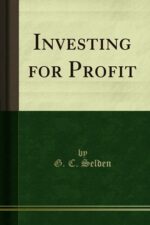
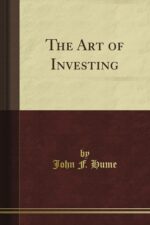

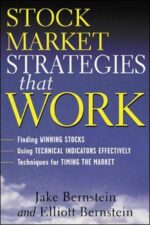
Reina Brown (verified owner) –
Amazing book
Braelynn Howe (verified owner) –
The Dean of Wall Street confesses. That would be a great lead, except that Benjamin Graham has little to confess. Rather, Graham, considered the father of modern security analysis, tells us about his life, career, and his intellectual passions. He shares his thoughts about a range of issues, and about his experiences. For instance, did you know that he valued his intellectual pursuits more than making money? Or that he was a Broadway playwright? These memoirs are more concerned with Graham’s story than with his investment techniques. We […] recommend this book to those who want to learn more about Ben Graham, the man. It is not for those who want to learn more about Ben Graham, the founder of value investing.
Alaric Greer (verified owner) –
I enjoyed this book, but it is not a book on investing. Here is my rough breakdown of the book:
40% Ben Graham’s childhood
30% Early work experience up until the Great Depression
10% His personal life with family and others.
10% His late-Depression successes in investing up to 1940.
10% His efforts as a playwright and as an amateur economist.
So, here’s my biggest gripe about the book: in many ways, Ben Graham’s biggest days as an investor — his greatest times of success in the 1940s & 1950s don’t get mentioned at all. I learned more of what he was like in that era from reading Alice Schroeder’s The Snowball.
Should this surprise us? No. Ben Graham wanted to live the good life in modern terms. From his time as a youth, he was hard-working, growing up amid poverty, and he never wanted to be poor as an adult.
He was a very bright guy on many topics. He was not only studied in the humanities (which he loved more), he was exceptionally good at math. The book does not describe him in these words, but he was the first hedge fund manager, and the first quantitative investor.
What made Graham a lot of money was realizing that convertible bonds and preferred stocks carried a valuable option that was often undervalued, and so he would buy the convertible security and short common against it. Strategies like this, plus activist investing, where he uncovered information advantages on undervalued stocks allowed him to become wealthy.
And that was enough for him. Unlike his more focused protege, Warren Buffett, once the game got too tough, and a pleasant retirement was attractive, he trotted into the sunset, with modest contact with his former friends in investing.
The book does not describe his time teaching at Columbia, nor any of the great investors that he influenced. Ben Graham was interested in investing, but he was more interested in the humanities, and generally having a happy time. Thus, if you read this book, realize that it is about a slice of the life of Ben Graham. The first half of his life comes in great detail. The last half of his life comes almost not at all.
But this is not an autobiography, it is a memoir. As such, Graham tells us what he wants to tell us, and leaves the rest unsaid. He tells us a little about his thoughts on marital infidelity, but does not tell us how his ending companion ended up being his deceased son’s wife.
All that said, we get what Graham wanted to reveal to us. Janet Lowe’s book on his life is more comprehensive on his later days… even Alice Schroeder gives us more on his later life by accident of covering Buffett.
In summary: this isn’t primarily a book on investing. It is a book on the thinking of one very bright man who invested and did well, and used the freedom that money brought for his own ends, both for good and for bad.
Ila Le (verified owner) –
good
Muhammad Lucero (verified owner) –
excellent book about an interesting man
Benicio Newton (verified owner) –
The book is very appropriately titled. The story is told directly by Ben, and it covers his life from his family when his father passed away to his education at Columbia after losing his scholarship the first time.
Ben was a colorful person, and reading an autobiography like this allows the reader to see the paths a great person chose in life to really become what we remember him for.
Of course, the fact the Warren Buffet was his best student and biggest advocate was probably the reason I picked the book up in the first place, but after reading it, I discovered the Ben was wise in more than just Wallstreet. My favorite wisdom derived from Ben is on the subject of sex and relationships, as he had so many of the latter while becoming the great investor that we first associate with him.
I feel that I learned skills that will help me grow to be wiser by reading his bio. I definitely suggest the book to anyone who is interested in not only Ben’s life but in contemplating how to improve his or her own.
Noelle Curtis (verified owner) –
Ben Graham was a legend, and his contributions to the investment profession are matched by few. I feel bad saying this, but his memoirs neglect to mention many of his more important contributions. For example, his contributions to the practice of value investing and establishment of the financial analyst profession are barely mentioned. There were some good quotes and insights, but I was hoping to learn a bit more about his philosophies.
Damien McKenzie (verified owner) –
This book will be of interest mostly to value investors of the type who hang on Warren Buffett’s every word and so might be curious to learn about the life of Buffett’s great mentor and the founder of value investing. If you are looking for actionable investment tips, though, look elsewhere (The Intelligent Investor or Security Analysis). Also, if your goal is to get to the heart of the man Benjamin Graham you also may be disappointed. Graham was very guarded, and his memoirs reflect this. He is stingy in writing about his feelings and also stingy with details about important life events–both personal and professional. Still, if you are interested in value investing and in Ben Graham, subjects on which not enough has been written, this book is an important one.
While Graham doesn’t go into much detail about his investment operations, you do get a bit of a feel for the environment that formed the man. There was the proud but cash-strapped family that taught him about the value of money and hard work. Before Graham ever was interested in business his mind was formed by a rich intellectual life, especially his life-long interest in literature and the classics in addition to a strong grasp of math. There is a nice description of the early days of Wall Street, its merits and its depredations, when Graham got his start during World War I. Graham also recounts the roaring twenties, followed by the crash and the Depression which left their mark on his investment strategy for the rest of his life. The book gives you a glimpse of a large swath of American economic and stock market history, though I often found myself hungry for more detail.
Perhaps the least known aspect of Graham’s life today is his work in economics and monetary policy, contributions that have been mostly forgotten but had some influence in his day. Surprisingly, Graham writes that he believes his economic theories would be his greatest legacy.
The flow of the story is a bit disjointed as Graham jumps around in overlapping chapters about different spheres of his life. To his credit Graham is very honest about what he sees as his flaws. One of the flaws that he regrets most is his inability to have really close friendships. Though he had many close business relationships and social acquaintances and so on, he said that he was unable to let people get close enough to have truly intimate relationships. Unfortunately the book too suffers from this flaw in its lack of detail and feeling at times and its skimming over important life events.
I’m not sure that Graham meant for the book to be a complete, published account of his life, rather it seems it was more of a relatively rough sketch of his experiences addressed to his family and friends. Also the account was written long before the end of his life. This incomplete account is a shame because Graham was a fascinating character who was near the center of a lot of historical events and rubbed shoulders with many of the important people of his day. He was a prolific and wide-ranging personality and one of the great pioneers of the financial world. He wrote plays even as he was publishing his seminal investment textbook, teaching at Columbia and amassing one of the most successful investment records of all time.
Perhaps Warren Buffett put his legacy best when he wrote: “It is rare that the founder of a discipline does not find his work eclipsed in rather short order by his successors. But over forty years after publication of the book that brought structure and logic to a disorderly and confused activity, it is difficult to think of possible candidates for even a runner up in the field of security analysis.”
Augustine O’Donnell (verified owner) –
I’ve read Securities Analysis front to back (yea, I know… I’m a devoted fan) and The Intelligent Investor, among several other books on corporate business valuation – just to set my credentials at the top.
And I have to say, this is one of the most fun I’ve had reading a book in a while. While you may think Graham is horribly dry in his investment books–with his Victorian and impersonal English–here he does an excellent job at writing an entertaining narrative of his life. I actually found myself laughing-out-loud pretty hard at some of the lines in it.
The 30-page introduction by Seymour Chatman is also well-written. It does a good job of summarizing and highlighting the book. I’d recommend you also read it.
Even if you don’t care about Graham, you can treat the book as an entertaining piece of fiction, if you like. The book is that much fun and the stories contained are sufficiently interesting by their own merit to keep any reader laughing, sobbing, and happily eager to read until the conclusion.